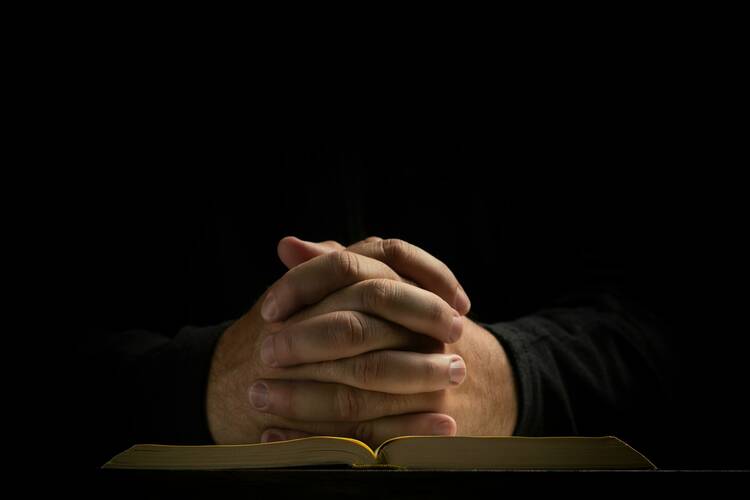A Reflection for Monday of the Thirteenth Week in Ordinary Time
Find today’s readings here.
“But he still persisted:
‘Please, let not my Lord grow angry if I speak up this last time.
What if there are at least ten there?’
He replied, ‘For the sake of those ten, I will not destroy it.’” (Gen 8:32)
Why is God intent on destroying Sodom and Gomorrah if he is, as we hear in the psalm today, kind and merciful? This is not the action of a merciful God, is it? This would be God acting as human beings do, taking his revenge on the region, on the guilty and the innocent indiscriminately. But Abraham, who is close enough to God to speak directly with him about the future of these cities, boldly asks for God’s mercy which goes against human sensibilities. What kind of world leader would spare a city that hates him or performs actual evil for the sake of a few innocent civilians there? Not any leader today, that is for certain.
Abraham knows that God is different from any worldly leader, even different from a leader of his own people, the chosen ones, because he desires the transformation of evil into goodness. God will always have faith that people will turn back to him, and he gives them ever-abundant mercy. He wants them to repent of their wickedness and live in and with him. Abraham simply reminds him of his love for humanity.
In his intercession, Abraham must bring God gradually from his intent to destroy Sodom and Gomorrah to his eventual clemency. First, what if there are 50 people who are good? O.K., they are worth saving. What about 45? Yes, they are also worth it. And 40? Yes. Abraham stops at 10 people in this city (possibly one of the largest cities at the time), and God says he would save all people, even the wicked ones, because of these 10.
Why 10 people exactly? It could just be that it is a small number—but numbers are never unimportant in the Bible. (There is even a book all about Numbers!) In Judaism today, the minimum number of people required for public prayer is 10. According to Jewish teaching, there could also be literally 10 righteous people there, as Lot, Abraham’s nephew; his wife; their four sons; and four daughters-in-law are in Sodom. The medieval Jewish philosopher Rashi writes that Abraham would have known that Noah and his seven righteous family members were not enough to save the world from the flood, so more than that are required.
The story continues after today’s reading: Angels come down to investigate the city and find that there are not, in fact, even 10 righteous people in Sodom, and so God does destroy the city. The people did not want to be saved; they did not seek repentance. How can that be merciful, especially when Abraham had asked for God’s forgiveness? If we read closely, Abraham asks God to save them if there are ten righteous ones. God agrees—if there are ten.
In a far better reflection than I could write, Pope Benedict XVI explained this passage by saying that today, that number required has decreased from ten to one, and that one is Jesus, whose sacrifice has saved us all and given us unending and undeserved mercy.
The first step in God’s mercy in the case of Sodom was Abraham’s intercession. The prayer of one man was enough for God to be willing to pardon a whole city, and our prayers, too, can have similar seemingly miraculous results if we have the boldness to ask them.








